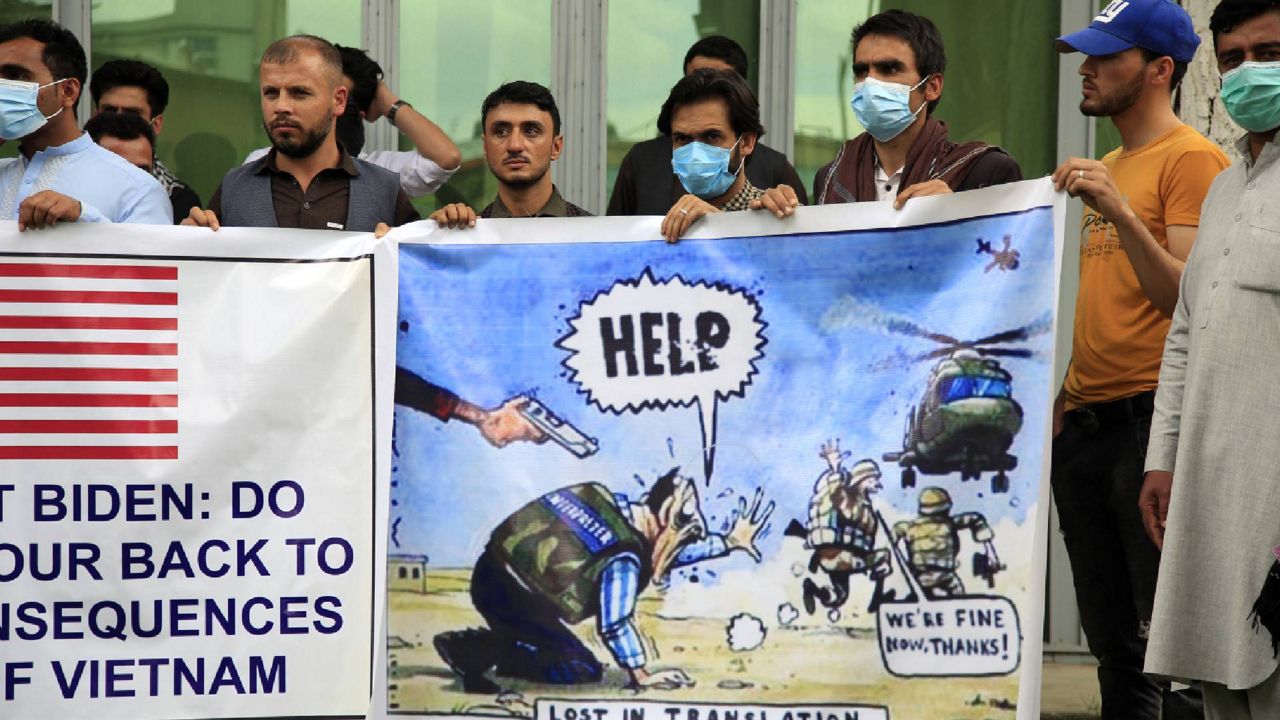The Biden administration said Monday it would evacuate about 2,500 Afghans — 700 who worked for the U.S. government plus their families — to a military base in Virginia while approval of their visas is pending.
The State Department said the Afghans will be housed at Fort Lee, a sprawling Army base south of Richmond, starting next week. The administration announced earlier this month that it would begin relocating Afghan visa seekers under an initiative called “Operation Allies Refuge.”
The Department of Defense recommended the base at the request of the State Department, which is taking the lead on the evacuation of Special Immigrant Visa (SIV) applicants.
“These are brave Afghans and their families whose service to the United States has been certified by the Embassy in Kabul, and who have completed thorough SIV security vetting processes,” State Department spokesperson Ned Price said Monday. “They will be provided temporary housing and services as they complete the final steps in the Special Immigrant process.”
Afghan interpreters, drivers, cultural advisers and other allies, who are seen as traitors by the Taliban, have come under increasing threat as the U.S. military leaves Afghanistan. They often receive direct death threats to them or their families.
The first group to be evacuated will consist of 700 Afghan applicants, plus their immediate families, accounting for a total of about 2,500 people. They represent the group furthest along in the visa process because they have already completed their initial security vetting.
The exact timeline of their arrival was not announced, but the administration has previously said evacuation flights would begin by the last week of July.
On Monday, Pentagon spokesman John Kirby said the 2,500 Afghans would be housed at the military base for no more than “several days,” while they finish the very last steps of processing.
But the announcement only accounts for a small portion of the Afghans who have applied for a special protective visa. There are more than 20,000 in the pipeline, not including their family members, according to the State Department’s latest report on the visa program.
Kirby also said Monday that the group of 700 was just the first wave and that the department is planning for more in the future.
“We are keeping open the possibility that there may have to be another site or sites available to handle the rest,” he said.
State Department Spokesperson Ned Price also outlined the next group to be evacuated: about 4,000 SIV applicants who have cleared Chief of Mission approval, a step earlier in the process that requires interpreters and other allies to prove their service to the U.S.
“Our plan is to take them to locations outside of the United States, where they will be safe and where they will be provided accommodation,” he said.
Advocates have called for Afghans to be evacuated to a U.S. territory, where they will have more support, but administration officials have said they’re looking at third countries as well.
Price also said that Monday marked the official launch of the Afghanistan Coordination Task Force, which is led by Ambassador Tracey Jacobson and will oversee the evacuation effort.
A lingering question is how many total Afghan allies will be evacuated this year. While more than 20,000 have applied for a visa, the administration has only confirmed the evacuation of a fraction who are in the later stages of the process.
Others are fearful they won’t be included due to a number of factors such as trouble finding a former U.S. supervisor to verify their work or the fact that they were terminated by the military after failing a routine polygraph test.
“If the Americans withdraw from Afghanistan even for a minute, I cannot guarantee I can be alive,” said a former interpreter named Omid, who spoke to Spectrum News from Kabul last month.
In the meantime, bipartisan members of Congress have aimed to boost the SIV program by both allocating more visas and speeding up the approval process.
The House is expected to vote Thursday on the Allies Act, which was introduced by Rep. Jason Crow, D-Colo., a veteran who served alongside Afghan interpreters, plus more than 120 bipartisan cosponsors.
That legislation would allocate 8,000 more visas to the program and streamline some steps in the process.
The White House issued a statement of support for the bill Monday afternoon.
The Associated Press contributed to this report.



